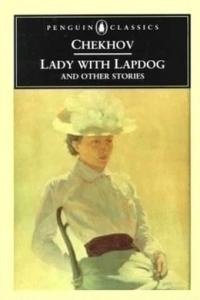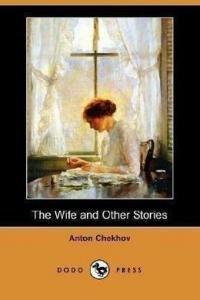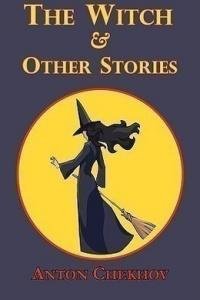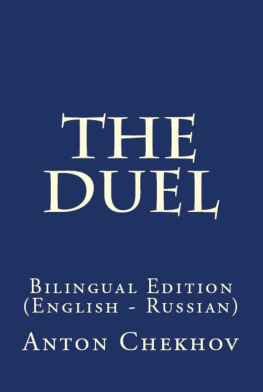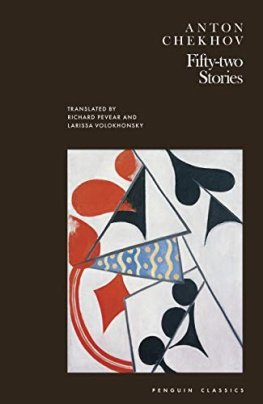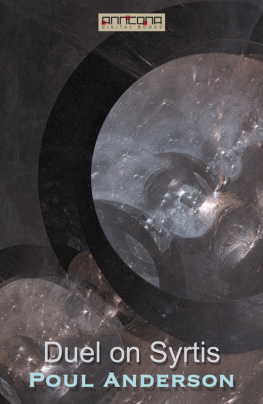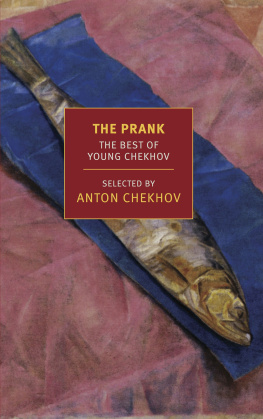The Duel and Other Stories
Anton Chekhov
It was eight o'clock in the morningthe time when the officers, the local officials, and the visitors usually took their morning dip in the sea after the hot, stifling night, and then went into the pavilion to drink tea or coffee. Ivan Andreitch Laevsky, a thin, fair young man of twentyeight, wearing the cap of a clerk in the Ministry of Finance and with slippers on his feet, coming down to bathe, found a number of acquaintances on the beach, and among them his friend Samoylenko, the army doctor.
With his big cropped head, short neck, his red face, his big nose, his shaggy black eyebrows and grey whiskers, his stout puffy figure and his hoarse military bass, this Samoylenko made on every newcomer the unpleasant impression of a gruff bully; but two or three days after making his acquaintance, one began to think his face extraordinarily goodnatured, kind, and even handsome. In spite of his clumsiness and rough manner, he was a peaceable man, of infinite kindliness and goodness of heart, always ready to be of use. He was on familiar terms with every one in the town, lent every one money, doctored every one, made matches, patched up quarrels, arranged picnics at which he cooked shashlik and an awfully good soup of grey mullets. He was always looking after other people's affairs and trying to interest some one on their behalf, and was always delighted about something. The general opinion about him was that he was without faults of character. He had only two weaknesses: he was ashamed of his own good nature, and tried to disguise it by a surly expression and an assumed gruffness; and he liked his assistants and his soldiers to call him "Your Excellency," although he was only a civil councillor.
"Answer one question for me, Alexandr Daviditch," Laevsky began, when both he and Samoylenko were in the water up to their shoulders. "Suppose you had loved a woman and had been living with her for two or three years, and then left off caring for her, as one does, and began to feel that you had nothing in common with her. How would you behave in that case?"
"It's very simple. 'You go where you please, madam'and that would be the end of it."
"It's easy to say that! But if she has nowhere to go? A woman with no friends or relations, without a farthing, who can't work "
"Well? Five hundred roubles down or an allowance of twentyfive roubles a monthand nothing more. It's very simple."
"Even supposing you have five hundred roubles and can pay twentyfive roubles a month, the woman I am speaking of is an educated woman and proud. Could you really bring yourself to offer her money? And how would you do it?"
Samoylenko was going to answer, but at that moment a big wave covered them both, then broke on the beach and rolled back noisily over the shingle. The friends got out and began dressing.
"Of course, it is difficult to live with a woman if you don't love her," said Samoylenko, shaking the sand out of his boots. "But one must look at the thing humanely, Vanya. If it were my case, I should never show a sign that I did not love her, and I should go on living with her till I died."
He was at once ashamed of his own words; he pulled himself up and said:
"But for aught I care, there might be no females at all. Let them all go to the devil!"
The friends dressed and went into the pavilion. There Samoylenko was quite at home, and even had a special cup and saucer. Every morning they brought him on a tray a cup of coffee, a tall cut glass of iced water, and a tiny glass of brandy. He would first drink the brandy, then the hot coffee, then the iced water, and this must have been very nice, for after drinking it his eyes looked moist with pleasure, he would stroke his whiskers with both hands, and say, looking at the sea:
"A wonderfully magnificent view!"
After a long night spent in cheerless, unprofitable thoughts which prevented him from sleeping, and seemed to intensify the darkness and sultriness of the night, Laevsky felt listless and shattered. He felt no better for the bathe and the coffee.
"Let us go on with our talk, Alexandr Daviditch," he said. "I won't make a secret of it; I'll speak to you openly as to a friend. Things are in a bad way with Nadyezhda Fyodorovna and me a very bad way! Forgive me for forcing my private affairs upon you, but I must speak out."
Samoylenko, who had a misgiving of what he was going to speak about, dropped his eyes and drummed with his fingers on the table.
"I've lived with her for two years and have ceased to love her," Laevsky went on; "or, rather, I realised that I never had felt any love for her. These two years have been a mistake."
It was Laevsky's habit as he talked to gaze attentively at the pink palms of his hands, to bite his nails, or to pinch his cuffs. And he did so now.
"I know very well you can't help me," he said. "But I tell you, because unsuccessful and superfluous people like me find their salvation in talking. I have to generalise about everything I do. I'm bound to look for an explanation and justification of my absurd existence in somebody else's theories, in literary typesin the idea that we, upperclass Russians, are degenerating, for instance, and so on. Last night, for example, I comforted myself by thinking all the time: 'Ah, how true Tolstoy is, how mercilessly true!' And that did me good. Yes, really, brother, he is a great writer, say what you like!"
Samoylenko, who had never read Tolstoy and was intending to do so every day of his life, was a little embarrassed, and said:
"Yes, all other authors write from imagination, but he writes straight from nature."
"My God!" sighed Laevsky; "how distorted we all are by civilisation! I fell in love with a married woman and she with me. To begin with, we had kisses, and calm evenings, and vows, and Spencer, and ideals, and interests in common. What a deception! We really ran away from her husband, but we lied to ourselves and made out that we ran away from the emptiness of the life of the educated class. We pictured our future like this: to begin with, in the Caucasus, while we were getting to know the people and the place, I would put on the Government uniform and enter the service; then at our leisure we would pick out a plot of ground, would toil in the sweat of our brow, would have a vineyard and a field, and so on. If you were in my place, or that zoologist of yours, Von Koren, you might live with Nadyezhda Fyodorovna for thirty years, perhaps, and might leave your heirs a rich vineyard and three thousand acres of maize; but I felt like a bankrupt from the first day. In the town you have insufferable heat, boredom, and no society; if you go out into the country, you fancy poisonous spiders, scorpions, or snakes lurking under every stone and behind every bush, and beyond the fieldsmountains and the desert. Alien people, an alien country, a wretched form of civilisationall that is not so easy, brother, as walking on the Nevsky Prospect in one's fur coat, arminarm with Nadyezhda Fyodorovna, dreaming of the sunny South. What is needed here is a life and death struggle, and I'm not a fighting man. A wretched neurasthenic, an idle gentleman . From the first day I knew that my dreams of a life of labour and of a vineyard were worthless. As for love, I ought to tell you that living with a woman who has read Spencer and has followed you to the ends of the earth is no more interesting than living with any Anfissa or Akulina. There's the same smell of ironing, of powder, and of medicines, the same curlpapers every morning, the same selfdeception."
"You can't get on in the house without an iron," said Samoylenko, blushing at Laevsky's speaking to him so openly of a lady he knew. "You are out of humour today, Vanya, I notice. Nadyezhda Fyodorovna is a splendid woman, highly educated, and you are a man of the highest intellect. Of course, you are not married," Samoylenko went on, glancing round at the adjacent tables, "but that's not your fault; and besides one ought to be above conventional prejudices and rise to the level of modern ideas. I believe in free love myself, yes. But to my thinking, once you have settled together, you ought to go on living together all your life."



